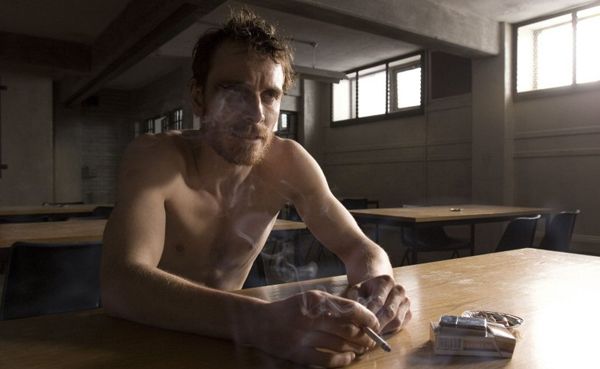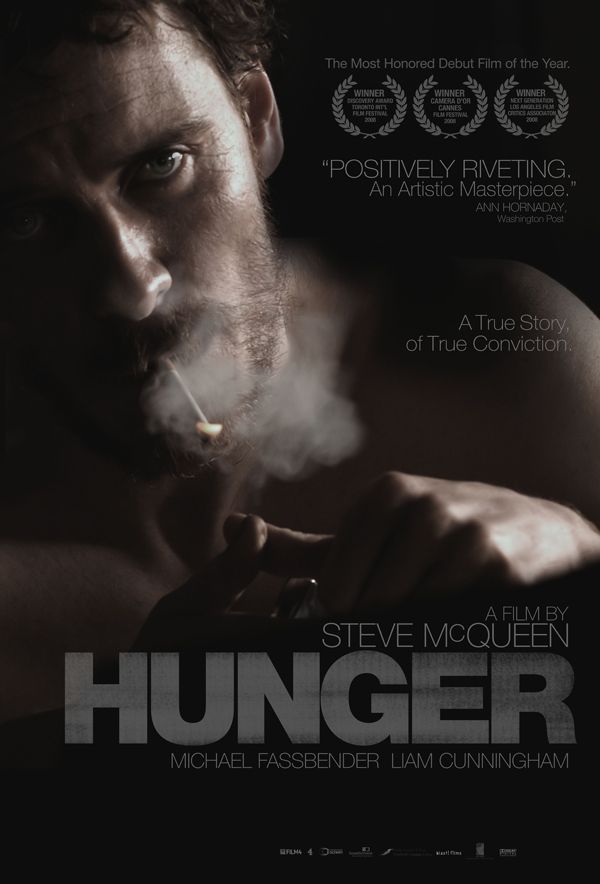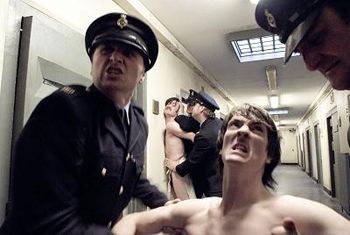There are performances, rare though they may be, that come in and grab you by the short and curlies. There is no denying Daniel Day Lewis in There Will Be Blood, Heath Ledger in The Dark Knight, and David Thewlis in Naked. In Steve McQueen's Hunger, Michael Fassbender gives one of those performances that you have to genuflect in awe. It's not because for the last section of the film he drops more weight than Christian Bale did for The Machinist. That's a great commitment, for sure, and shows a dedicated performer. But it's a scene in the middle of the film that plays out in three shots over twenty minutes that shows the man has the gift to command - he makes it impossible to take you eyes off of him. Playing the real-life Bobby Sands, in one scene Fassbender lays out his plan for a hunger strike, and how and why he can commit to doing it. And that hunger strike by members of the IRA is the center of a film about "the troubles" in this rather brilliant film. My review of The Criterion Collection's Blu-ray of Hunger after the jump.
To start, director Steve McQueen is of no relation to the actor (he both British and Black). That out of the way, Hunger is set in Thatcher's England, and opens with a prison guard (Stuart Graham) washing his hands, and then checking under his car for bombs. It's a hard time, and when Davey Gillen (Brian Milligan) comes into prison, and is celled up with Bobby Sands (Fassbender) we see how everyone behaves. The prisoners offer resistance by smearing fecal matter on their cells and dumping urine in the hallways, while beatings and shavings are the norm. Bobby calls a meeting with Father Dominic (Liam Cunningham) to tell him his plans for protestation. He's going on a hunger strike with other men in the organization, and is willing to lay down his life for what he believes in. The father tries to talk him out of it, but Sands is resolute.
McQueen's film is a tone piece, and it doesn't play itself out in a heavy-handed way. It expects you to have some sense of what was going on, though the text is complete in that way. There's no hand tipping about whether one side is right or not. It's just the way things are (though Thatcher doesn't come off particularly well). What Fassbender does with his performance as Sands is show someone with the commitment to stop eating and starve himself to death for the sake of what he believes in. Like McQueen, I can see how this would be enough to hang a movie on, I'm fascinated by this - it's a terrible thing, but also horribly impressive because of what it requires. And Fassbender gets in the headspace to present that. It's a calm and cool decision, it's a thing he believes in so thoroughly that there is no doubt or hesitation.
McQueen's cadence as a filmmaker is fascinating. He has a painter's eye, and doesn't think in terms of coverage or anything standardized, so the film grips you by never letting itself be easy to get a handle on where it's going to go. And this gives his images a real power; it's smart that he never lets the film go on too long (it's a quick 96 minutes). But what holds the film together is Fassbender's performance. It's a marvel.
The Criterion collection's Blu-ray presents the film in widescreen (2.35:1) and in DTS-HD 5.1. The transfer is perfect. Just perfect. Extras include an interview with McQueen (18 min.), a making of (13 min.) and an interview with Fassbender (14 min.). Together you get a fairly good portrait of the making of the film and artistic intentions. Since Cunningham and Fassbender have one scene together that was twenty eight pages long and shot in three set ups, the two moved in together to rehearse. Also included is the documentary "The Provos' Last Card?" (45 min.), which gives the film a greater historical context. The film's theatrical trailer is also included.




